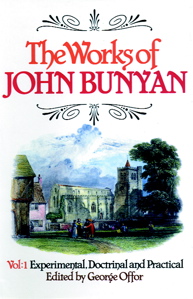 Sidney Greidanus lists six “reasons for preaching from the Old Testament as well as the New” (Preaching Christ from the Old Testament: A Contemporary Hermeneutical Method
Sidney Greidanus lists six “reasons for preaching from the Old Testament as well as the New” (Preaching Christ from the Old Testament: A Contemporary Hermeneutical Method 
 [Grand Rapids: Eerdmans, 1999], 25–32):
[Grand Rapids: Eerdmans, 1999], 25–32):
- The Old Testament is part of the Christian canon.
- The Old Testament discloses the history of redemption leading to Christ.
- The Old Testament proclaims truths not found in the New Testament.
- The Old Testament helps us to understand the New Testament. [Understatement!]
- The Old Testament prevents misunderstanding the New Testament.
- The Old Testament provides a fuller understanding of Christ.







